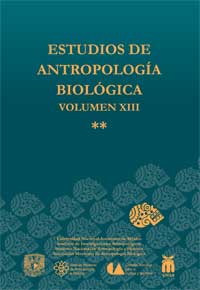La actividad física en preadolescentes escolares y sus repercusiones somáticas y fisiológicas
DOI:
https://doi.org/10.22201/iia.14055066p.2007.26431Keywords:
actividad física, somatología, escolares españoles, composición corporalAbstract
Growth is considered as a complex period in which maturation and acquisition of the ideal yield of organs and systems is sensitive and depends on the living conditions of people. It has been debated if during the school period the physical activity would suppose a positive, negative o neutral aspect in the final result and speed of the somatic change events. Moreover, the effect of the increasing sedentarism in children and teenagers is also an object of attention. In this context of extreme situations, the aim of the present study is to analyse, from an integral point of view, the children within 9 to 12 years old, evaluating biological aspects, nutritional habits, activity and sport, to consider the process of growth in a socially uniform context of the city of Madrid. The sample consists on 110 boys and girls of the ages before mentioned, resident in Madrid, with a medium-low economic situation. Transverse and longitudinal variables of corporal composition are analysed by two methods: bioimpedance and skinfolds; functional variables: vital capacity and arterial tension; haematics: cholesterol and glucose; nutrition: survey of weekly consumption, and activity in coordination with the physical education teacher. The results indicate a clear sexual dimorphism in the sequence of the events and growth rate, in relation with the sport practice of these children: weight, IMC and body fat percentage are different among the pupils who practise sport and the sedentary ones, not being registered a significant variation in vital capacity, arterial tension or cholesterol. Moderated physical activity in these ages has a greater effect on the somatic composition of the sport practitioners than on the physiological evaluation, which does not seem to be affected. Therefore, Sport can play a very important role in the control of the overweight increase observed in the teenage stage, which features intense physiological changes.
Downloads
Downloads
How to Cite
Issue
Section
License

http://creativecommons.org/licenses/by-nc-nd/4.0/


